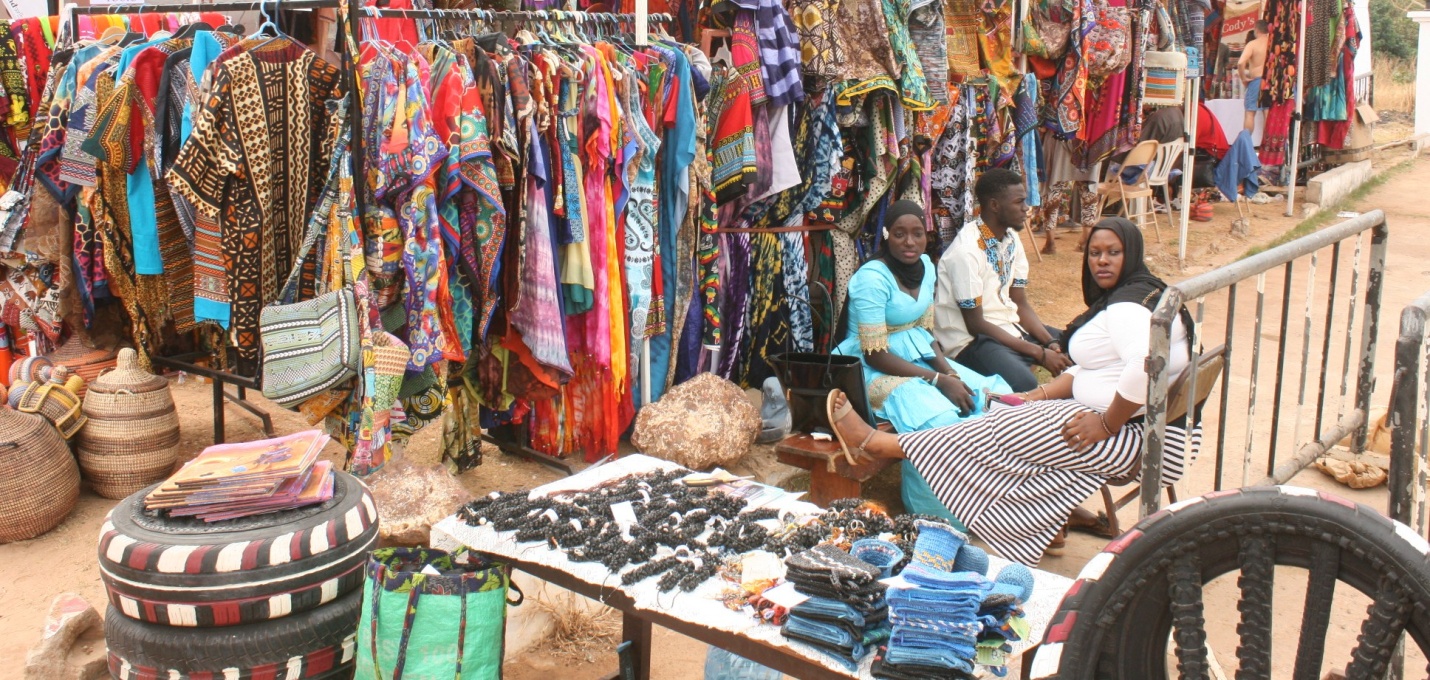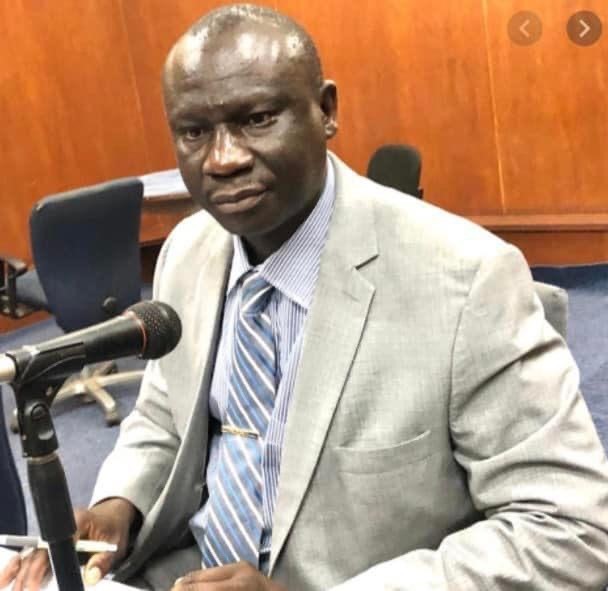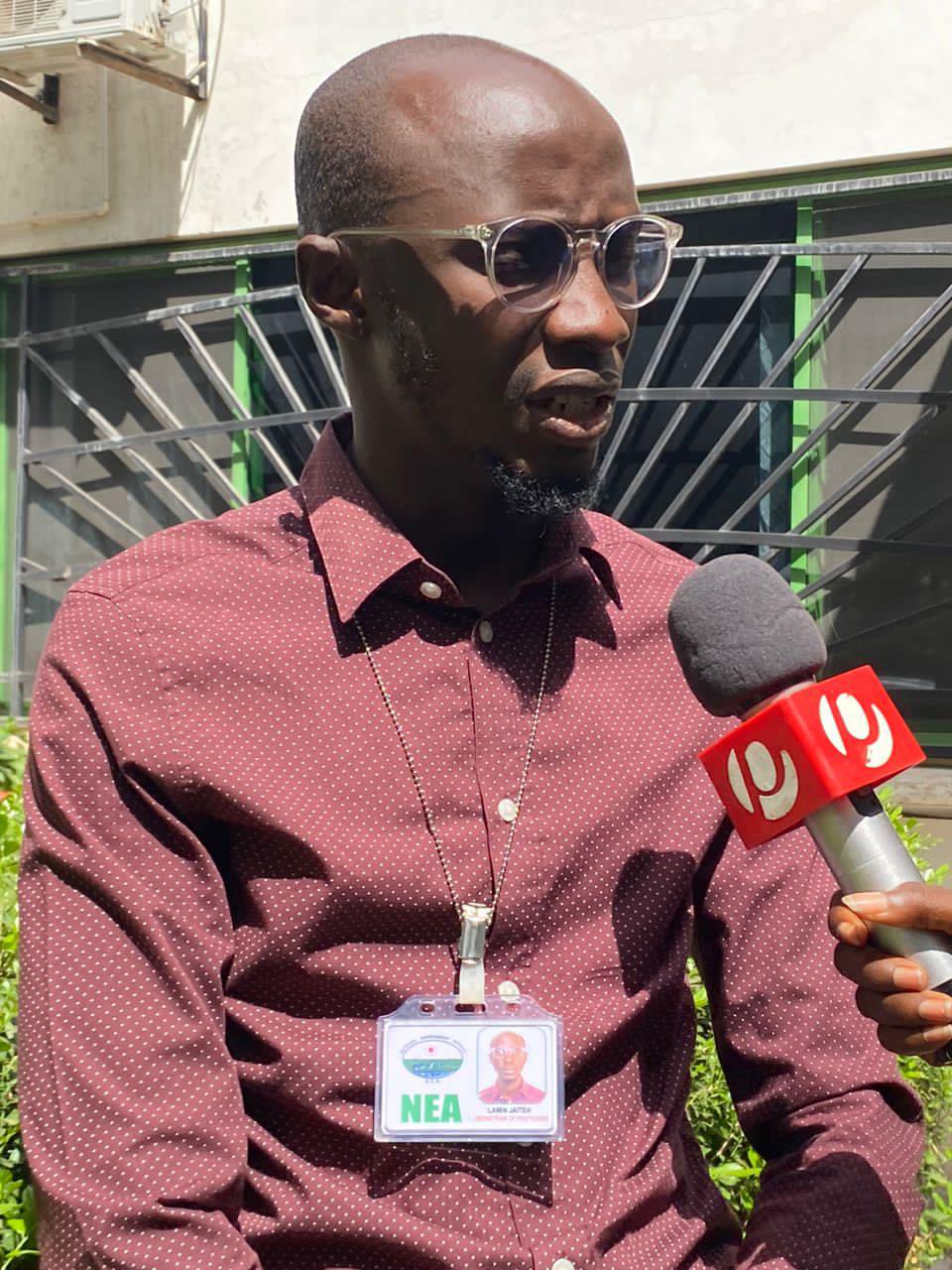By Yunus S Saliu
With the prolong Covid-19 pandemic causing pandemonium and continues spreading across the globe, The Gambia Creative Sector, which is one of the active and vital sectors in the country is now seriously shattered by gust of the pandemic, resulting to major socioeconomic hardship for many.
At the outbreak and discovery of the virus in the country – 17th March, 2020 which duration and scope is still unknown, the government declared lockdown with different restrictions and cancellation of events and activities in The Gambia, which impacted heavily on creative community.
As the pandemic continued so The Gambia creative community continued loosing revenue, audiences, customers as venues, skill centers, museums, craft markets even theatre were closed while all contracts were put on hold to exercise the issued cautionary measures by the WHO and The Gambia Ministry of Health in other to control the spread and contracting the virus.
Gradually the creative and cultural community plight dwindling but with hope that the situation will end soonest, but alas.
People of creative community were a little bit stronger in the cities but at the rural level it is nothing to talk about as the pandemic impacted on women and girls ruthlessly. One among the regions in The Gambia grappling with the situation is North Bank Region.
Among other things, the region houses two UNESCO World Heritage Sites – Kunta Kinteh Island Related Sites Juffureh/Albreda and Fort Bullen Barra. It is a region which among its communities in The Gambia was the first to interact with the white people and it is where colonialism started from and a region where the first Fort was built to fight against slavery.
With its popularity it houses different people in creative sectors, this includes artists, musicians, ‘griots,’ writers, craftsmen/women and among others with highly represented women and girls in the sector.
Burden
As Covid-19 continued ravaging the society, Adama Jatta, founder of Violence Against Girls who is also a trainer of skilled works such as tie and dye, batik, soap and candle making, harped on how the gust of Covid-19 had impacted on her job and the life of her trainees.
“This so called Covid-19 has really impacted a lot in my work and places more burdens on me. There is no work or contract and people are not buying our materials and no organize skills training workshop, too, since April 2020. Everything blocks!” Adama Jatta trainer of skilled works lamented.
Ms Jatta who is not patronize by only local people disclosed that since evacuation of tourists from the country in March 2020 after the outbreak, tourists and visitors are not forthcoming “though we are looking forward to the next winter tourism season due in October.
She said “tourists patronize me more than the locals, but now no tourists coming to the destination, no business in the country all because of Covid-19 pandemic.”
2020/2021 winter tourism season, for creative sector according to her, ended in April and in vain and now “it is the green season starting this month of May and all contracts are still on hold. It makes life very tough for people in rural areas.”
Restrictions
Ms Raki Jallow, is one of the young writers from North Bank Region. Her latest book is called Salymata but Covid-19 restrictions has made her whined after the launching.
“Salymata is my latest published book which I have invested times and money. It was difficult to get it publish, eventually I did published and launched it but now the books are stuck with me at home. Because Covid-19 flopped the launching totally,” Ms Jallow who is also a school teacher complained.
According to her, Covid-19 restrictions as put in place by the government debarred people from attending the launching of the book “because of social distancing and also there is limited number of people allowed to access the hall. The book launching wasn’t well grace so there was no book sold.”
Violation of Rights
In her submission, the Trainer, Ms Adama Jatta, argued that the pandemic has violated her rights through the government continuous declaration of State of Public Health Emergency as the pandemic surge.
She continued that in many ways the pandemic violated her right as she cannot buy some stuffs for herself while “my job is not going in a normal way it used to be, it has done more harm to my life and the life of some of my trainees,” she noted.
“More so, this Covid-19 restrictions as declared by government violated my right because my books were meant to be sold out and due to Covid-19 the books are at home with me. “I could not sell them there were restrictions on schools, and social gathering not allowed. Now I will have to wait till they say goodbye to Covid-19. Maybe then I will be able to do my activity properly and re-launch my book if possible, but that’s going to be additional cost, Covid-19 has grounded me anyway!” Ms Raki Jallow whined.
Challenges
“Women and young ladies of this region, not limited to people in the creative sector, are facing a lot of hardship with the yet to end Covid-19 situation,” Michelle Mendy, Lady Counselor of Lower Niumi Constituency in North Bank Region disclosed.
The Honorable Counselor noted that it is becoming more difficult for mothers to feed their kids from the revenue they are generating from their works and “many people are moving away from the sector for alternative activities hence the restrictions have put standstill on events among other things.”
One of the big challenges skilled women and girls in the region are facing is the loan taken from the micro finance organizations “but now difficult to payback all what they invested are kept back in the house hence there is no one patronizing them.”
Nothing is coming out of their investments while the only language understands by the micro finance is ‘paying your debts.’
The pandemic has disturbed activities hence there is no gathering, no show and there is no money forthcoming so feeding becomes problem and “it is through organized event or ceremony such as show, drama, exhibition, wedding, naming ceremony, festival and so on people in creative sector are making money so in the absent of social gathering everything remains standstill and dull.”
Commenting on this pandemic that has impoverished the creative sector, Hassoum Ceesay, Director General of National Center for Arts and Culture (NCAC) expressed that Covid-19 pandemic has a very serious negative impact on creative sector.
In his comment, Covid-19 impact challenges on the sector including closure of venues, because arts is a venue based sector because it is an audience based products. And people in this sector involved musicians, writers, comedians, theatre, dramatists, artists, dancers, sculptors, weavers among other.
“The emergency situation last summer which has closed down performances and minimized gathering was a very serious blow because there are lots of young women in particular – actresses in the movie and music industry in the sector whose contracts were put on hold,” he noted.
According to him creativity itself sometimes is partnership that practitioners can secure contract to travel outside the shore of the country to perform and entertain audience even as far as Europe “but because of situation of the pandemic they cannot travel the international collaboration and networking also proved difficulty,” the Director General explained from challenges created by Covid-19.
And for young artists male or female, that kind of international cooperation are very important even matter a lot they give confidence and widen the horizon of the creative community and those involved.
Meanwhile, there is no empirical data to show the statistic of females in The Gambia Creative sector “but we can say that women and girls are highly represented in The Gambia creative society particularly in audio visuals – films, dramas, and in dancing, skilled centre these are four areas I know we are having very healthy and high representation of female” Mr Ceesay disclosed.
Lesson from Covid-19
Covid-19 as a pandemic is a human rights violator it comes with different inconveniences such as declaration of lockdown, as people have to lock themselves in to minimize the spread of the disease. When an artist cannot perform, shoot a movie even to rehearse, trainers cannot train the trainees because of certain measure, it is a violation.
“Therefore the pandemic itself is really a gross violation but understandable in the sense that the painful thing need to be done to control the disease,” the Director General for Arts and Culture expressed.
However, he reminded that the pandemic has also “thought us one or more lessons such as by going digital, in particular if one cannot perform live for a crowd, but can have a virtual show. So every pandemic come with its own opportunity and lesson so the opportunity it has brought to the creative sector is to go beyond physical and explore the virtual and the online,” he added.




